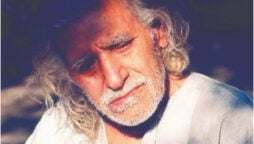Synopsis
The Aura Of Legends, Never To Be Forgotten!

Junaid Jamshed, Amjad Sabri, Noor Jahan were god gifted artists of many labels — trendsetters, spiritual inspirations and the centre of much media attention.
Junaid Jamshed

Junaid Jamshed was born in Karachi, and rose to prominence as one of the country’s most popular pop performers in the 1980s and 1990s with Vital signs, followed by his solo career in the 2000s. Vital Signs quickly rose to prominence in Pakistan’s underground music scene. Remember, there was no social media back then.
“Chera” was the title of their debut album. During this time, they also caught the attention (or ear) of Shoiab Mansoor, a well-known record producer and broadcaster in Pakistan’s entertainment business. Shoaib assisted them in writing the song “Dil Dil Pakistan,” which became an overnight phenomenon and is still popular among Pakistanis today. In reality, the BBC had a vote in 2003 to determine the most popular song in the world, and “Dil Dil Pakistan” was among the top ten.
The band split up after a decade and Junaid Jamshed embarked on a solo career. Junaid’s debut solo album, “Us Rah Par,” was released in 1999 and quickly became Pakistan’s best-selling album of the year. It was something he was incredibly proud of. After the success of “Us Rah Par,” Junaid Jamshed chose to go low-key and disappear from the public glare for a while.
Junaid Jamshed declared his retirement from music in 2004 after much introspection and soul searching, and that he was now committing and devoting his life to Islam. To make ends meet, he started a clothing line called “J.” that sells Pakistani-inspired apparel and is now one of Pakistan’s most well-known clothing labels.
The heartbreaking news arrived on the 7th of October, 2016. On a PIA flight 661, Junaid Jamshed and his wife Nayha Jamshed were returning to Islamabad from Chitral. The flight ended in tragedy. None of the passengers made it out alive.
Those who knew him say there was an aura around him. He will be remembered as a national singing legend, a devout and religious scholar, a television personality, a successful business, a politically aware pundit, a philanthropist, and a great gentleman. “He was immensely talented and there will never be another Junaid.”
Amjad Fareed Sabri

On June 22, 2016, the ardent devotee of the Holy Prophet (PBUH) was assassinated in Karachi. His funeral prayers in Karachi’s Liaquatabad neighbourhood drew one of the city’s largest crowds ever. It drew individuals from all walks of life, including those who admired and loved him. Amjad Fareed Sabri was a charming man. He was a wonderful human being in addition to being a devout Sufi and a well-known qawwal.
His generosity extended beyond his wife, five children, and other family members. He had a large circle of friends and neighbours who were reliant on him for food. He was the kind of friend you could always count on, someone who was thoughtful, real, and supportive. And he was always pleasant – in his 40-year existence, he was never known to lose his temper.
Amjad Fareed Sabri sung just for the joy of singing. To him, money, fame, and fortune were merely side effects of being a qawwal. Of course, he enjoyed being handsomely compensated because he saw his fee as a reflection of his status as a qawwal. Despite this, he had minimal, if any, financial ties.
Amjad Fareed Sabri came from a long line of musicians who followed the Seniya Gharana of music created in the sixteenth century by the renowned Mian Tansen. His forefathers and mothers were both accomplished vocalists and instrumentalists.
Fareed Amjad Sabri had a large collection of qawwalis. It featured Hazrat Amir Khusro’s compositions, Sufi Saints’ works, and contemporary poetry. His most famous qawwalis were not traditional qawwalis, but modern creations that he introduced himself to. Indeed, he is one of the few qawwals who has contributed to the genre’s repertory, and his compositions have been performed by qawwals from various gharanas. Sabri did not display the arrogance often seen in hereditary musicians, who consider all but classical music unworthy and unimportant.
Madam Noor Jehan

The lady known as ‘Malika-e-Tarannum’ manages to evoke deep emotions of respect throughout the country, and this Ramzan yet again, the icon who is widely regarded as one of the most influential music personalities to have ever lived, the late Pakistani star is remembered with deep sentiments in each household.
Noor Jehan died in Karachi on December 23, 2000 (27th Ramzan). Do you have any idea how many songs Noor Jehan has managed to sing in her life? You might be surprised at the figure. Noor Jehan is said to have appeared in over 40 films and sung over 20,000 songs.
Noor Jehan is regarded as Pakistan’s first female film director. Allah Rakhi Wasai was a Punjabi woman from a Punjabi family. Let’s take a look at all Noor Jehan accomplished during her time as a well-known showbiz personality: After Muhammad Ali Jinnah, Noor Jehan has been named to the list of Pakistan’s Most Influential People. In addition, the elder musician was the first Asian woman to perform a Qawali performance.
She is the recipient of President’s Award, Special Nigar Award, Pride of Performance, NTM Life Time Achievement Award, Sitara-e-Imtiaz, PTV Life Time Achievement Award, and Millennium Award was also designated as Cultural Ambassador of Pakistan.
Noor Jehan was India’s first female film star, laying the groundwork for playback singing. Before single-handedly kick-starting music in Pakistan and inspiring future generations, she inspired a generation of singers, including Lata Mangeshkar.
Catch all the Breaking News Event and Latest News Updates on The BOL News
Download The BOL News App to get the Daily News Update & Live News.












 Read the complete story text.
Read the complete story text. Listen to audio of the story.
Listen to audio of the story.